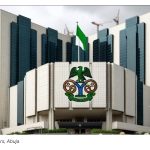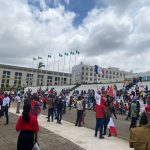Technology
Senate Confirms Danbatta’s Reappointment as NCC Boss
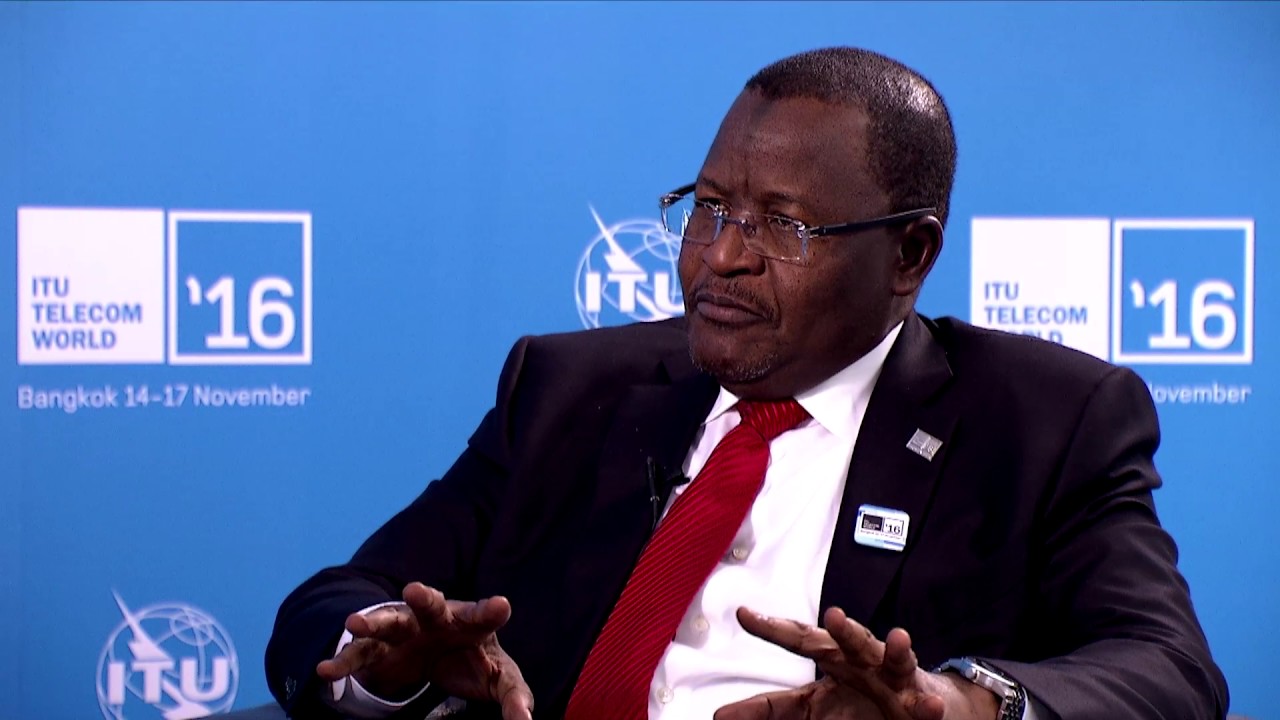
The reappointment of Prof Umar Danbatta as the Executive Vice Chairman and CEO of the Nigerian Communications Commission (NCC) has been confirmed by the Senate.
The upper legislative chamber of the National Assembly confirmed his reappointment for the position at the plenary on Tuesday.
The name of Mr Danbatta was no sent to the red chamber by President Muhammadu Buhari for confirmation for the position he has held since 2015.
Business Post reports that Mr Danbatta was appointed, in the first instance, for a five-year term in office as the NCC’s boss on August 4, 2015 and was subsequently confirmed by the Senate on November 25, 2015.
At the plenary on Tuesday, July 21, 2020, in Abuja, the Senate confirmed his nomination after the adoption of a report submitted by the leader of the Senate Committee on Communications, Mrs Oluremi Tinubu.
Mr Danbatta had, on Wednesday, July 15, 2020, appeared before the senate screening committee and gave impressive accounts of his stewardship as the country’s chief telecoms regulator in the last five years.
With the senate confirmation, Mr Danbatta has received a vote confidence to continue to steer the regulatory activities of the countries over $70 billion telecommunications industry for another five years towards fast-tracking Federal Government agenda on digital economy development.
His visionary leadership has been hinged on NCC’ Strategic Vision Plan (SVP) for the fiscal years 2015-2020, focused on the 8-point agenda, the effective implementation of which has led to impressive broadband penetration which rose from a mere 6.0 per cent in 2015 to 40.14 per cent in May, 2020.
Active Internet subscriptions also increased from 93 million to over 141 million currently during the period.
The number of active telephone subscribers also rose from 150 million in 2015 to 192.32 million in May 2020 with teledensity currently standing at 100.72 per cent, following the rebasing the teledensity to 91 per cent in March, 2019.
The increase in broadband penetration, Internet usage, number of access to telephone and several other initiatives by the commission, especially in the areas of driving tech innovations, creating employment, promoting digital inclusiveness, have helped improve the sector’s Gross Domestic Product (GDP) contribution from 8.50 per cent in 2015 to over 11 per cent currently, with a lot of digital activities taking place in all the sectors of the economy.
Mr Danbatta is set to consolidate the modest achievements of the past five years by focusing on broadband penetration, consumer protection and empowerment, efficient resource utilisation, and facilitation of fibre infrastructure deployment.
Technology
African Startups Raise $174m in January 2026 as Trend Extends for Fourth Year

By Adedapo Adesanya
African startups raised a total of $174 million in January 2026, according to the latest data released by Africa: The Big Deal, the platform that tracks all startup funding across the continent.
The platform, which considers disclosed deals of $100,000 and above, showed that the figure represents a sharp slowdown compared with January 2025, when startups raised $276 million, and is also well below the $263 million monthly average recorded over the previous 12 months.
However, the funding levels remain higher than in January 2023 at $106 million and in January 2024 at $85 million.
The data revealed that only 26 startups announced funding rounds of at least $100,000 in the review month, pointing to caution among investors.
This is just above half of the monthly average over the past year and significantly below the number of deals recorded in January 2025.
Based on this, January 2026 marks the lowest monthly tally since at least 2020, highlighting how selective capital deployment into African startups has become as investors prioritise fewer, larger, and often later-stage bets.
“Actually, a MoM dip between December and January is something the ecosystem’s already experienced in 2023, 2024 and 2025,” according to The Big Deal.
The data showed that Egypt-based fintech valU emerged as the top fundraiser after securing $64 million in debt financing from the National Bank of Egypt (NBE).
Nigeria’s mobility financing startup MAX followed, raising $24 million through a mix of equity and asset-backed debt, while Terra Industries raised $11.75 million in the defence sector, to further step up its infrastructure and bet on expansion.
NowPay, an Egyptian fintech, raised $20 million, Moroccan proptech startup Yakeey came in with a $15 million Series A, and Côte d’Ivoire-based fintech Cauridor raised $3.5 million in seed funding to enhance its payment infrastructure, support expansion efforts, and strengthen its presence in new markets.
There were three noteworthy announcements in January: Flutterwave acquired Mono in Nigeria for around $30 million in an all-stock deal; Commit acquired tech talent start-up Savannah; and Izili Group acquired Qotto, a company specialising in off-grid solar solutions operating in Benin and Burkina Faso. The transaction expands Izili’s footprint to six African countries and strengthens its position in rural and off-grid electricity access.
Technology
Airtel Nigeria to Lead Next Phase of Telecoms Growth With Quality of Service Advancements
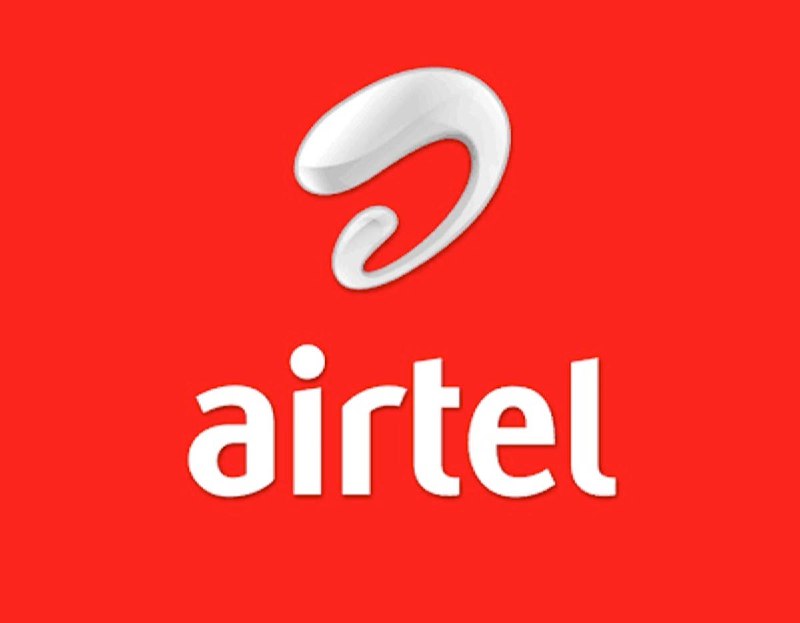
Airtel Nigeria has unveiled a robust update on a range of network, infrastructure and technology advancements that position the company at the forefront of quality of service leadership in Nigeria’s telecommunications industry. Announced at its first media roundtable of 2026, the updates reflect sustained investments made over the past 12 to 24 months and signal an accelerated push to stay ahead of surging data demand in a rapidly digitising economy.
Speaking to senior editors and industry correspondents, Airtel Nigeria Chief Executive Officer, Dinesh Balsingh, said the company’s strategy is anchored on deliberate scale, depth and resilience.
“Over the last two years, we have invested with discipline and clarity to strengthen our network nationwide. Those investments are now translating into measurable improvements in performance, customer experience and reach, including in underserved and hard to reach communities,” he said. “In 2026, we are accelerating these upgrades because Nigeria’s data appetite is growing, and leadership in this industry will belong to those who plan ahead.”
At the core of Airtel Nigeria’s quality of service drive is the rapid expansion of its network footprint. Since December 2023, the company has increased the number of network sites by 15.5%, adding 2,242 new sites and bringing its total to nearly 16,711 nationwide. Further deployments are planned in 2026 to strengthen coverage, capacity and resilience across urban and rural locations.
Network capacity upgrades have also reached a significant scale. In 2025, Airtel completed capacity enhancements on 30% of its sites, covering over 5032 sites nationwide. Today, 99% of Airtel Nigeria’s sites deliver high-speed 4G mobile broadband, establishing the operator as a full nationwide 4G network. This year, capacity upgrades are being extended to more sites to sustain performance as data usage continues to rise.
According to Chief Technology Officer, Harmanpreet Singh Dhillon, spectrum depth and optimisation remain critical to network quality. “We have increased our 4G spectrum by 10MHz and we are actively optimising our holdings. These actions allow us to support higher data throughput, better speeds and more consistent service, especially in high-traffic areas,” he said.
Airtel Nigeria is also accelerating its 5G rollout. Over the last three months, the company has more than doubled the number of active 5G sites. The accelerated 5G upgrade happening now will connect the top 20 Nigerian cities to high-speed 5G networks, with a significant part of Airtel’s network in these cities becoming 5G-enabled in the coming year.
Beyond terrestrial infrastructure, Airtel is extending connectivity through space-based solutions. The company has established and signed partnerships with satellite providers OneWeb and Starlink, enabling enterprise-grade connectivity for businesses in remote locations, hard-to-reach areas and operational outposts. Recently, Airtel announced Nigeria’s first Direct-to-Cell partnership with Starlink, a breakthrough that will allow customers to remain connected while travelling through deep remote areas and enable small rural communities to access Airtel’s digital and fintech services.
The backbone supporting these services continues to expand. Airtel Nigeria has built an extensive fibre footprint across almost all states, developed through years of sustained deployment. Following the announcement to double capital expenditure last year, the company committed to expanding its fibre network by 25%, and intensive rollout activity is ongoing across cities and states. Airtel has also confirmed plans to extend its fibre footprint even further, both within major cities and between states.
A pivotal national milestone is also on the horizon. Nigeria currently relies on a single internet submarine cable landing and breakout point in Lagos. Airtel Nigeria has announced that it will launch a second internet breakout from the South of Nigeria, leveraging the 2Africa submarine cable. In partnership with 2Africa, Airtel will shortly begin carrying internet breakout traffic from Kwa Ibo in Akwa Ibom State.
“This will create a faster and alternative path for large parts of the North and South, and improve resilience for the entire ecosystem. Airtel is proud to take the lead in making this happen,” Balsingh said.
Underpinning these advances is a robust IT and cloud backbone. Airtel Nigeria operates an enterprise-grade private cloud with thousands of virtual machines, managing massive storage and compute power across locations. The infrastructure includes large GPU clusters, supporting AI-driven applications such as fraud detection, intelligent network self-healing and advanced customer analytics. The company recently announced the upcoming launch of its hyperscaler-ready 38 megawatt data centre in Eko Atlantic. This is designed for Nigeria’s next phase of digital growth, powered by AI.
From a customer access perspective, Airtel Nigeria maintains one of the largest retail footprints in the country. Its products and services are available in over 200,000 outlets nationwide, supported by more than 4,000 exclusive shops across all local government areas and 250 flagship stores.
Balsingh added that, “Quality of service today is about resilience, redundancy and intelligence, and that is what Airtel is delivering. From fibre to cloud to satellite-enabled connectivity, we are building a platform that allows Nigerian businesses to scale with confidence, regardless of location.”
He reaffirmed Airtel Nigeria’s long-term commitment to the country. “Our focus is consistent investment, disciplined execution and deep confidence in Nigeria’s future,” he said.
Aside from Singh Dhillon, other members of the Airtel Nigeria leadership on hand with subject matter expertise at the roundtable included Director, Airtel Business, Ogo Ofomata; Director, Marketing, Ismail Adeshina; Director, Information Technology, Kemi Ariyo; and Director, Corporate Communications and CSR, Femi Adeniran.
Technology
Optasia Commits to Compliance, Ethical Data Use, Respect for Consumer Privacy
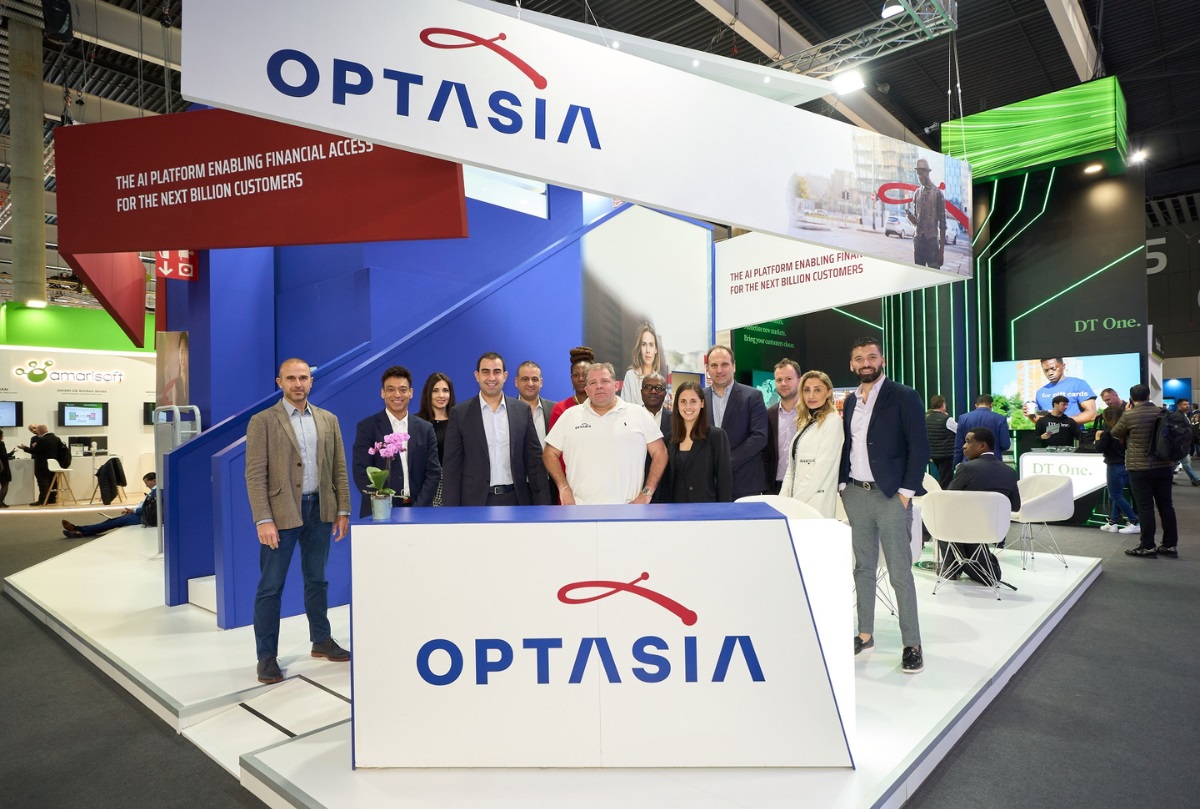
By Modupe Gbadeyanka
A global AI-driven fintech platform providing Micro Financing Solutions (MFS) and Airtime Credit Solutions (ACS) to underbanked individuals in 38 countries, Optasia, has reaffirmed its commitment to building long-term confidence across the digital ecosystem through “compliance, ethical data use and respect for consumer privacy.”
At the National Data Privacy Summit to celebrate Nigeria’s National Privacy Week 2026 in Abuja recently, the Chief Commercial Officer of Optasia, Ms Uchenna Agbo, highlighted the heightened responsibility that accompanies rapid digital growth.
“As Nigeria’s digital economy expands, the data that powers innovation and inclusion must be protected with the same seriousness as financial capital,” she said.
Optasia was the official partner of the event themed Privacy in the Era of Emerging Technologies: Trust, Ethics & Innovation.
The seminar brought together regulators, financial institutions and technology leaders. It was convened in line with the Nigeria Data Protection Act (NDPA), which safeguards personal information across the country.
The chief executive of the Nigeria Data Protection Commission (NDPC), Mr Vincent Olatunji, in his speech, underscored the central role of privacy in building trust and unlocking sustainable digital growth.
“Privacy is not an isolated privilege; it is a fundamental right guaranteed by our Constitution. By building trust, we unlock the full potential of our digital economy and protect every Nigerian’s digital identity,” he submitted.
These priorities closely align with Optasia’s approach, as the company focuses on enabling inclusive digital financial services while embedding privacy, accountability and trust into its technology and partnerships.
As a company operating AI-powered financial services within highly regulated environments globally, Optasia brings practical experience in embedding governance, accountability and data protection into large-scale digital systems.
The organisation delivers its services exclusively through licensed financial institutions and regulated distribution partners, supporting the responsible expansion of digital financial services while maintaining robust standards of security and privacy.
Optasia’s SOC 2 Type II certification underscores its commitment to maintaining internationally recognised standards of security, confidentiality, and privacy.
Its Nigeria engagement is anchored in four operating priorities: privacy-by-design, responsible use of AI, innovation without intrusive data practices, and stronger collaboration across the licensed ecosystem.
-

 Feature/OPED6 years ago
Feature/OPED6 years agoDavos was Different this year
-
Travel/Tourism9 years ago
Lagos Seals Western Lodge Hotel In Ikorodu
-

 Showbiz3 years ago
Showbiz3 years agoEstranged Lover Releases Videos of Empress Njamah Bathing
-

 Banking8 years ago
Banking8 years agoSort Codes of GTBank Branches in Nigeria
-

 Economy3 years ago
Economy3 years agoSubsidy Removal: CNG at N130 Per Litre Cheaper Than Petrol—IPMAN
-

 Banking3 years ago
Banking3 years agoSort Codes of UBA Branches in Nigeria
-

 Banking3 years ago
Banking3 years agoFirst Bank Announces Planned Downtime
-

 Sports3 years ago
Sports3 years agoHighest Paid Nigerian Footballer – How Much Do Nigerian Footballers Earn




